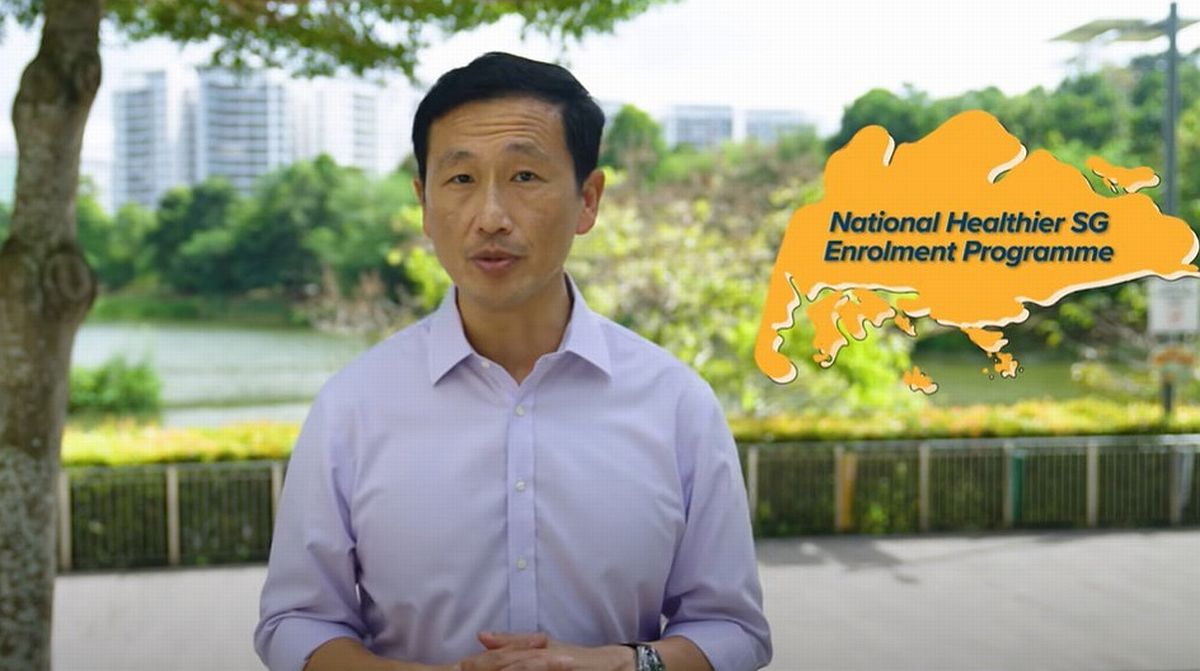KUALA LUMPUR, May 19 – The Singaporean government has launched public engagements to gather citizens’ feedback on its plan to shift the country from curative hospital care to preventive care.
The country’s “Healthier SG” strategy, which was announced by Health Minister Ong Ye Kung in Parliament last March, aims to link each Singaporean to a single family physician to develop personalised health plans with them.
The public’s views and suggestions on Healthier SG through an online survey or a series of five town hall sessions from May 26 to June 15 will be incorporated into a White Paper that will be tabled in Parliament later this year.
“Announced at MOH’s Committee of Supply Debate 2022, Healthier SG will help all Singaporeans take steps towards better health. We have built a good healthcare system in Singapore, but we need to focus on better health and quality of life for everyone,” Singapore’s Ministry of Health (MOH) said in a statement yesterday.
“Prior to the start of these public consultations, we have been engaging general practitioners (GPs) and the senior management of our health care clusters to hear their views, understand their concerns and co-create solutions.
“We have also conducted more than 100 in-depth one-on-one interviews with residents to understand how different circumstances and experiences may influence their views on Healthier SG.”
Ong told Parliament last March that non-communicable diseases (NCDs) like hypertension and high cholesterol are increasing in Singapore amid an ageing population.
“After 10 years of foundation laying, plus a pandemic crisis, it is time for us to take the next big step. There is urgency to this because in the next 10 years, long after the Covid-19 dust has settled, we will have to tackle our biggest health care challenge since our nation began — the deteriorating health of the population,” Singapore’s Straits Times quoted Ong as saying.
He noted that only three in five Singaporeans have a regular GP, citing studies that show generally better health and fewer hospitalisation and emergency department visits for those with a single chosen family doctor.
According to Ong, three health care clusters in the country, which each look after up to 1.5 million residents, will coordinate the GP enrolment programme to ensure that residents can get primary care near their homes.
According to the Healthier SG website, the government targets for all Singaporeans to have a trusted and lifelong relationship with their family physician, who will help develop a personalised health plan for them, encourage recommended health screenings and vaccinations, discuss health goals, as well as address one’s health condition and concerns across their life course.
Under Healthier SG that targets enrolment with a GP of one’s choice, the government will also support GP clinics’ capabilities, such as in telemedicine, IT systems, and manpower in the primary and community care sectors, Ong said.
Three regional health clusters – Singaporean health care provider SingHealth, the National University Health System, and the National Healthcare Group – will work towards developing an integrated health and social ecosystem within their region.
They will partner with various agencies like the Health Promotion Board, Agency for Integrated Care, People’s Association, Sports SG, and the National Parks Board, as well as social and community partners to support the health goals of individuals.
“For a start, Singaporeans would be able to access more physical activities and healthier diets, and choose the activities that suit them best,” said a Healthier SG statement.
“For those who are older, the regional health clusters and their family physicians will advise them on how they can attend healthy activities and programmes, such as at the local eldercare centre.”
Healthier SG also plans to increase access and capacity of mental health services in the community and hospitals; and strengthen child and maternal health and well-being through family support programmes, as well as community aged care for senior citizens.
Healthier SG further plans to protect the wellbeing and prevent abuse and harassment of health care workers, including junior doctors.
The Singaporean government wants to invest in technology to allow people with chronic disease to monitor their condition from home, as well as to facilitate data sharing across different health care providers.
Healthier SG moots other efforts to promote healthier living, like reducing sugar consumption by extending labelling requirements and advertising prohibitions to include freshly prepared beverages; increasing lower-sodium food alternatives; encouraging physical activity; and increasing public education on the harms of vaping.
Health promotion will also be enhanced for lower-income families, besides creating an SG$1.5 million fund for targeted health promotion programmes led by community volunteers.
Healthier SG aims to improve support for women and couples, such as providing access to fertility health information, funding support for certain types of pre-implantation genetic testing, and improving psychosocial support for couples undergoing fertility treatments.








